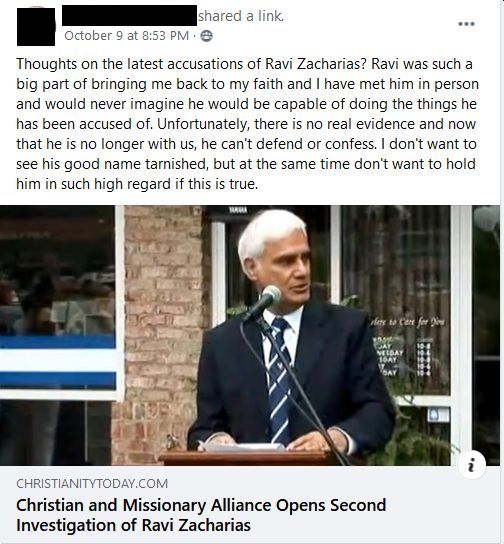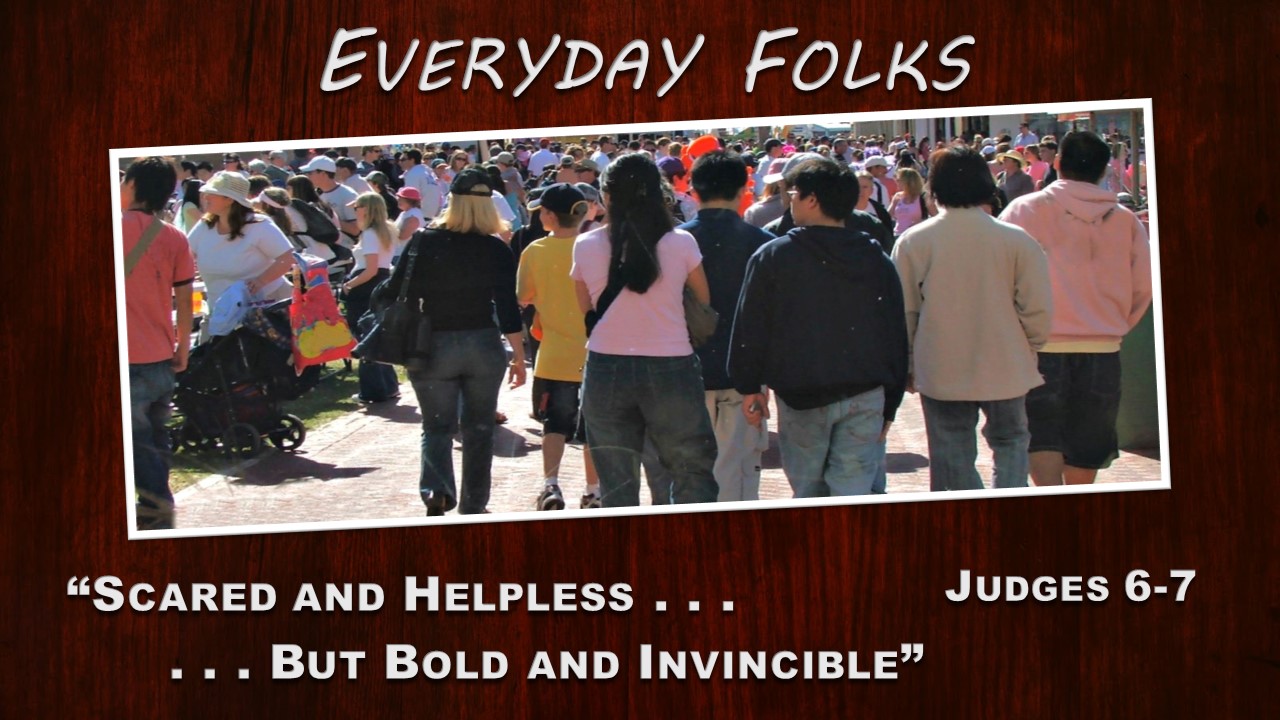I recently noticed an interesting question on an apologetics Facebook thread that I watch. Someone had posted a link about the allegations toward Ravi Zacharias, a world-renowned apologist who passed away earlier this year. In case you’re not familiar with the situation, in 2017 a woman had accused Zacharias of engaging an inappropriate online and phone relationship with her. While Ravi admitted that he had allowed more online conversations than he should have, he vehemently denied anything inappropriate and claimed that it was nothing more than an extortion plot. However, new allegations have come out recently from employees at a couple of day spas that he co-owned. Because he is no longer alive, we cannot get his side of the story, so we may never know what really happened.
Whether or not the allegations are true, the question posed by the person on the social media thread is important. Here is what she wrote:

The lady who made this post seemed to have a genuine concern. If Ravi Zacharias was, in fact, guilty of the accusations posed against him, should we still hold him in such high regard?
In a situation like this, there are many lessons that we can learn. For example, if Ravi was guilty, we are reminded that anyone can succumb to temptation—even the highly esteemed Ravi Zacharias. This should call us to greater vigilance in our own lives. Also, his guilt would remind us not to elevate any man to the status of a hero, because any one of us can fail.
If Ravi was innocent of the charges against him, we have yet another lesson to learn: serving God invites attacks from the enemy. The more damage we do to the enemy’s kingdom, the bigger the target we wear. Again, we need to be constantly vigilant because “your adversary the devil walks about like a roaring lion, seeking whom he may devour” (I Peter 5:8).
However, regardless of the accuracy of the allegations leveled against Ravi, the question with which many may struggle is this: If a Christian leader from whom I have learned truths that developed my faith were to fall, should I suspect my faith?
That is an understandable dilemma. After all, we put trust in people who have studied and worked hard to present deep truths in ways that we can understand them, and when they fall, their teaching gets put under suspicion. What do we do with this?
My recommendation is simple: we should evaluate arguments based on their merit rather than the character of the one who makes them.
While it is natural to more easily accept a truth when it is spoken by a person we know and trust, the one speaking the truth does not change the veracity of the statement. We should evaluate all truths based on their own merit, separate from any person.
Ravi Zacharias was known to many as a brilliant apologist who found answers to difficult questions—even a hero to most of his contemporaries. But his notoriety or his character had no effect on the arguments he made. If what he said was true, it stands as true with or without Ravi. If it was false, it stands as false with or without Ravi.
We should never accept or reject an idea simply because of the one who promotes it. Our task is to test the idea by itself and see if it stands on its own two feet. If so, grasp it and make it yours. If not, reject it and do your homework to find the truth.



